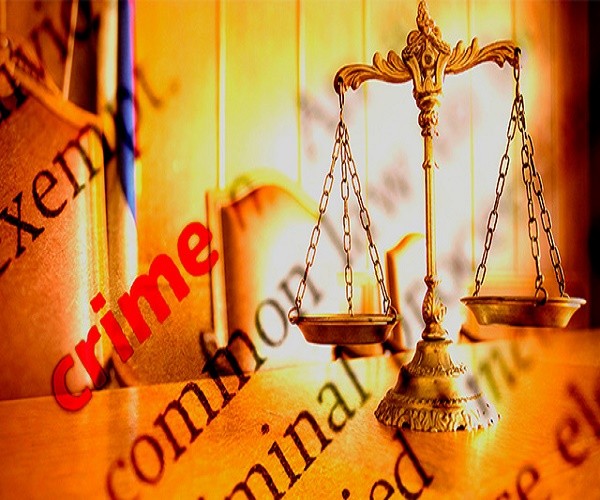The arrest of five activists in the Bhima Koregaon case and the charges filed against them under the Unlawful Activities Prevention Act should worry us deeply.
It may not be in sync with best democratic practices, but almost all contemporary liberal democratic regimes have an assemblage of “exceptional” laws. Sometimes more so in the bastions of democracy, like in the US and India. Often referred to as “extraordinary” laws, such laws are designed to, and legitimised by, the persistence of extraordinary situations. Internal strife of a violent, destabilising nature, civil war, threats to national security and terror activities formed some of the reasons for the enactment of extraordinary laws globally.
Prima facie it seems like a fair proposition deriving its logic from the “necessary evil” argument – these laws may be monstrous in their implications, they may violate civil liberties, but are needed to deal with exceptional situations. The threat of threat becomes the raison d’etre for exceptional laws.
But there’s something deeply worrying about the sanction these laws carry, and the range of activities they routinely bear upon. Under vague and nebulous definitions of terror and unlawful activity, they often encompass a wide range of nonviolent political activity and suppress contrarian, dissenting ideological or political perspectives. They allow for detentions without a chargesheet, create strong presumptions against bail, admit in-custody confessions and tacitly sanction torture. Over the years, their victims have been many innocents, whose stories ought to bear upon the collective conscience of this nation.
The latest victim of one of our most enduring, exceptional laws – the Unlawful Activities Prevention Act (UAPA) – are the arrests made in the context of caste-based violence in the Bhima Koregaon town of Maharashtra. Five months after the violence, the state police has shifted the focus of its investigation from Hindutva leaders Milind Ekbote and Sambhaji Bhide to a group of five social activists working with Dalits, Adivasis and political prisoners.
The trajectory of the case in itself raises many questions. The first FIR registered on January 8, 2018 (at Vishrambaug police station in Pune), originally alleged inciting communal harmony at the Elgar Parishad programme organised on December 31, 2018 to commemorate 200 years of the victory of Mahar soldiers over the Peshwa in the Bhima Koregaon battle. In March 2018, the case was converted into one of criminal conspiracy. In April, advocate Surendra Gadling’s name was added though the FIR did not originally name him. On June 6, he and four others – Shoma Sen (head of department, English, Nagpur University), Sudhir Dhavale (Marathi poet), Rona Wilson (of the Committee for the Release of Political Prisoners) and anti-displacement activist Mahesh Raut – were arrested and charged under several sections of the draconian UAPA, which ensures long detention and difficulty in obtaining bail.
Enacted in 1967, UAPA initially gave powers to the Central government to impose all-India bans on associations. The process of banning associations could simply be done by the government announcing them as ‘unlawful’ and hence banned (Section 3). This 1967 law then underwent a few amendments that expanded its jurisdiction: in 2004, to include provisions of the repealed POTA (Prevention of Terrorism Act) to include terrorist acts and organisations; in 2008 (following the terror attack in Mumbai) to extend the maximum period in police custody and to include incarceration without a chargesheet and restrictions on bail; in 2012 to expand the already vague definition of “terrorist act” to include offences that threaten the country’s economic security. If the UAPA 1967 made an anti-secession law a permanent requirement, the subsequent amendments made the anti-terror law permanent.
A “sunset clause” in laws like TADA (Terrorist and Disruptive Activities (Prevention) Act) and POTA ensured that these laws were repealed when conditions that mandated their existence no longer existed. But for every exceptional law that was repealed, UAPA became the natural home for their homeless provisions. Often clauses and provisions were copied verbatim and pasted into UAPA. It may not be as famed as its dreaded kins, TADA and POTA, but in the absence of a “sunset clause” it is actually more hazardous in its implications. UAPA does not have an expiry date or a due date of lapse, making it the most durable, most enduring, “exceptional” piece of legislation.
An exceptional law like UAPA does two things simultaneously. One, it circulates the narrative of desperate times to restrict rights of citizens under arrest. It paints a Galding, Sen, Dhavale, Raut and Wilson as aiders and abettors of Maoist forces in India in order to justify their arrest under UAPA. It allows detention without a chargesheet for up to 180 days and in police custody up to 30 days. As Arun Ferreira and Vernon Gonsalves state, it also creates a strong presumption against bail and a presumption of guilt for terrorism offences merely based on the evidence allegedly seized.
Second, exceptional laws alter how societal forces enter and bear upon the political regime and practice. They seek to suppress the very conditions that allow for political representation that can bear upon state policy. The five charged under UAPA were working with Dalit and tribal groups for the protection of their land, resources and rights. In that they were representing the interests of some of the most marginalised communities in backward regions.
A key strategy of the Indian state in recent times has been to allege that such mobilisations are fragmenting the unity of the state. The new threat to the nation could be an advocate Galding – a lawyer who has been representing the most oppressed and marginalised in courts for the last 25 years (and who has been fighting the cases of people victimised in Khairlanji’s anti-Dalit violence, Ramabai Ambedkar Nagar police firing case and the Manorama Kamble murder case); or advocates like Upendra Nayak of Odisha, Murugan of Tamil Nadu and Satyendra Chaubey of Chhattisgarh, who have been implicated in the cases of their own clients. It could be journalists like Santosh Yadav or Somuru Nag in Bastar, an activist like Khurram Parvez in Kashmir. Common to all these people is that they seek to represent the interests and security of people who have been excluded from access to both rights and resources. And common to all is they were charged under one exceptional law or the other.
The recent arrests in the context of the Bhima Koregaon violence ought to worry us, for they demonstrate the capacity of the state to legally enforce and normalise conditions of exceptionalism. They ought to worry us for their enormous capacity to prey upon ordinary citizens in exercise of their ordinary rights in “normal” times. The “chronic crisis of national security” narrative becomes the justificatory premise for the deployment of exceptional laws like the UAPA that have poor safeguards against both misuse and misapplication.
Rather than a tool to moderate political antagonism, they serve to strengthen the repressive arm of the state. As incidence of political participation and mobilisation increase, as the nature and features of strife mutate, recourse to exceptional laws steadily become more frequent and more vindictive. Extraordinary laws become means to settle political scores, neuter political opposition, stifle political representation. The idiom of “exception” is fast becoming central to the politics of insecurity in India. This should deeply worry us. #KhabarLive







